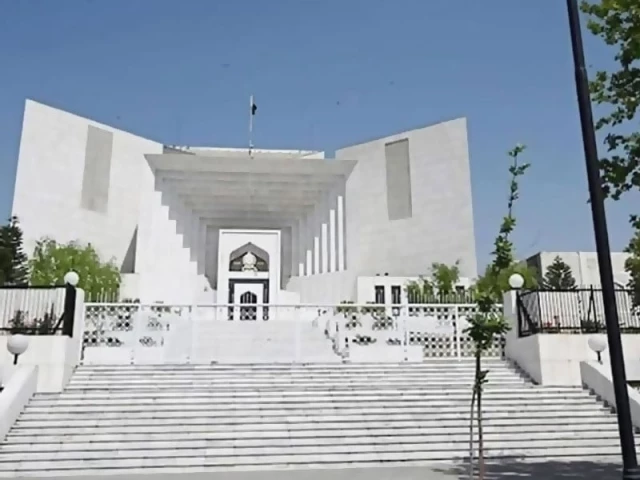SC rules pension a constitutional right
'To deny or withhold pension is to strip a person of the security they have justly earned,' judgement observes

The Supreme Court has underscored that the right to pension is a constitutionally protected entitlement, not a matter of generosity, and is inherently tied to the dignity and livelihood of retired employees.
"Pension is not a matter of bounty, charity, or benevolence - it is a right protected under Articles 9 and 14 of the Constitution of the Islamic Republic of Pakistan, 1973 and inseparably linked with the right to life, dignity and livelihood, for without sustenance in old age, these rights ring hollow," states a 10-page judgment authored by Justice Syed Mansoor Ali Shah.
The ruling noted that it should be taken more seriously for those public servants for whom it is a crystallised return on years of faithful service, a form of deferred wages earned through the sweat, labour, and loyalty of an employee. "It embodies the principle that those who serve must not be cast aside in their twilight years," it added.
The verdict came as the apex court held that an employee of the Oil and Gas Development Corporation (OGDCL) is entitled to receive an additional pension. A division bench comprising Justice Mansoor Ali Shah and Justice Aqeel Ahmad Abbasi heard the employee's appeal against the Islamabad High Court's dismissal of his petition.
The judgment noted that to deny or withhold a pension was tantamount to depriving a person of the security they had rightfully earned.
"To deny or withhold pension is to strip a person of the security they have justly earned, leaving them exposed to indignity, vulnerability, and want," it observed.
"Therefore this right must be protected in the shape of the grant of pension that is not only adequate but also predictable. Moreover, an element of respect and empathy is to be maintained while granting pension which would be in consonance with the values that our Constitution espouses with dignity as the highest constitutional value," the judgment added.
The court further held that the law itself acts as a safeguard to protect the rights of employees, ensuring that long-earned entitlements are not undermined by institutional arbitrariness.
"Ordinance, 2001, therefore, not only recognises but also protects pension by ensuring that the terms and conditions of service of the employees of the erstwhile Corporation, and now of the successor Company, cannot be altered to their disadvantage. To trifle with pension is, therefore, to trifle with constitutional justice itself," the judgment said.
It also emphasised that commercial autonomy is both a legislative design and a constitutional necessity for public sector enterprises engaged in strategic sectors of the economy.
"Strong, independent public institutions are the bedrock of economic development, good governance, and the rule of law," the court observed.
"When boards of statutory corporations or public companies are permitted to exercise independent judgment, they advance the twin objectives of commercial viability and public interest, thereby serving the larger purposes of the State. Conversely, when such bodies are reduced to administrative subordinates of the executive, both economic growth and democratic accountability suffer. In a constitutional democracy committed to the separation of powers and the strengthening of institutions, autonomy of state-owned enterprises is therefore indispensable," the judgment stated.
The court declared that the petitioner was entitled to an additional pension under Section 5 of the Ordinance, 2001, read with Regulation 15(1A) of the Pension Regulations, and directed the company to pay the amount within 30 days of receiving the judgment.
"In case the compliance report is not received till the first week of November 2025, the case will be put up on the judicial side for necessary orders," the ruling stated.
























COMMENTS (13)
Comments are moderated and generally will be posted if they are on-topic and not abusive.
For more information, please see our Comments FAQ